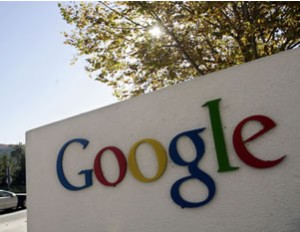
An advocacy group has filed a complaint with the federal government accusing New York University (NYU) and Northwestern University of discriminating against the blind by adopting Google’s eMail program.
The National Federation of the Blind (NFB) said March 15 that Gmail and other Google applications used by the schools aren’t fully functional with text-to-speech technology, and their adoption violates the Americans with Disabilities act.
The Baltimore-based group is asking that the Justice Department investigate. It also wants colleges to halt adoption of such software until it’s accessible to everyone.
More news on Google in higher education…
Higher ed still prefers Gmail over competitors
Both schools recently adopted Google Apps for Education for campus eMail and other services.
The National Federation of the Blind says other software options available are accessible to blind students. But the group says more than half of U.S. colleges that are outsourcing their eMail are choosing Google programs.
“Given the many accessible options available, there is no good reason that these universities should choose a suite of applications, including critical eMail services, that is inaccessible to blind students,” said Marc Maurer, NFB’s president. “[The NFB] will not tolerate this unconscionable discrimination against blind students and faculty and callous indifference to the right of blind students to receive an equal education.”
A 2010 survey of education-technology preferences showed that nearly 60 percent of respondents from public universities who use outsourced eMail hosting services said their campus uses Gmail accounts, with 35 percent using Microsoft Outlook and 5 percent using Zimbra.
The disparity is even greater at private universities, where more than seven in 10 respondents said their school uses Gmail accounts, according to the research. Twenty-five percent said they use Microsoft.
Alan Eustace, senior vice president of engineering and research at Google, said the company met with Maurer last week and “he shared a powerful message on the importance of accessibility. We left the meeting with a strong commitment to improving our products.”
The NFB’s complaint also asks Justice officials to investigate the use of Google Apps in four Oregon school districts after public school systems signed on with Google last year.
Prominent schools that have transferred campus eMail services to Google’s servers include Northwestern University, Villanova University, Case Western University, and Notre Dame.
In an announcement posted to its website, NFB pointed out that the the Departments of Education (ED) and Justice stressed the responsibility of colleges and universities to use accessible eReaders in 2010.
Russlyn Ali, assistant secretary for civil rights at ED, said in a June 2010 announcement that ED officials would watch for eReader programs cropping up in K-12 schools and higher-education institutions.
Technical assistance will be provided on a “case-by-case basis,” she said, and the government will be “responsive” to any IT decision makers bringing eReaders to their school or campus.
Most of the complaints had come from colleges and universities that have launched pilot programs using the Amazon Kindle and Kindle DX, including Pace University, Princeton University, Case Western University, and the University of Virginia’s Darden School of Business, Ali said.
Arizona State University (ASU) ended its Kindle pilot this spring after the National Federation of the Blind and the American Council of the Blind filed a discrimination lawsuit.
The settlement did not involve payment, but ASU pledged that it would “strive to use devices that are accessible to the blind” in future eReader programs, according to a university statement.
- Extron AV Switching, Streaming, and Control Systems Aid Higher Learning at Idaho’s First Medical School - June 1, 2021
- Extron XTP, Streaming, and Control Systems Empower Point Park University’s Varsity Esports Program - June 1, 2021
- Extron NAV Series Delivers AVoIP Throughout Allied Health Veterans Hall at UNC Wilmington - June 1, 2021

Comments are closed.